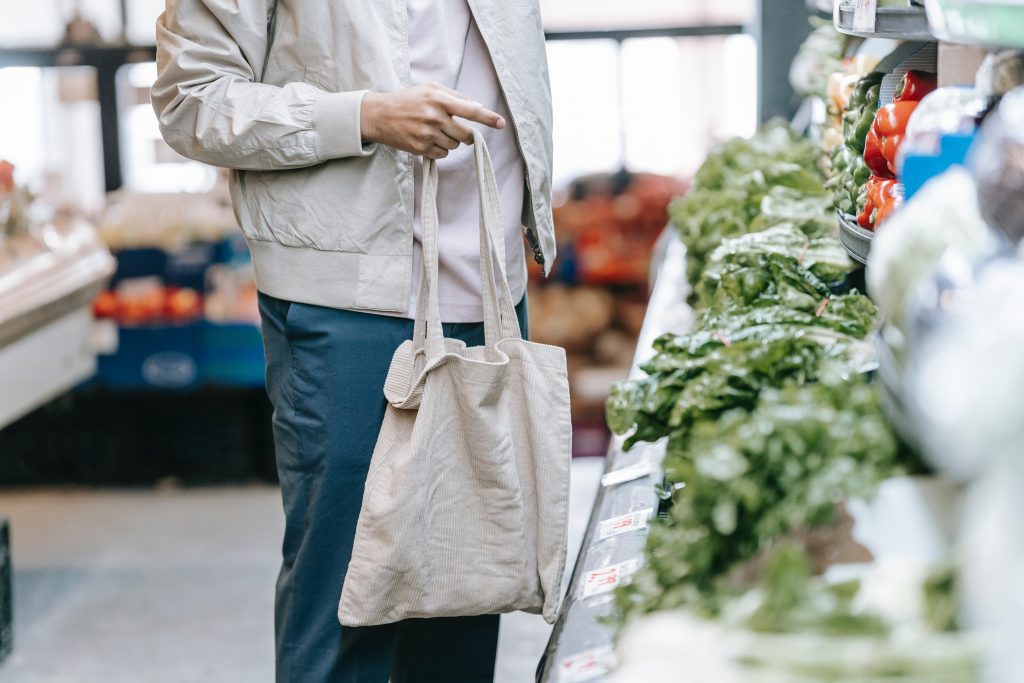Most of us visit a supermarket weekly to buy the food we need for the coming days. It is easy to get into a routine, visiting the same parts of the shop every time. Have you ever thought about how your supermarket habits could be improved to help protect the planet? There are a few things we can all do easily that can make a difference!
Choose Loose over Packaged
We all know the damage that plastics are causing to our planet. Microplastics are becoming so ubiquitous in our oceans that there are more pieces of plastic than creatures. Additionally, plastic is created from crude oil, a fossil fuel. Using fossil fuels needs to become a thing of the past if we are to preserve the planet’s health. So, using plastics should become less and less commonplace, and we can all help that to happen. One small way to reduce our plastic consumption is by choosing plastic packaging free foods. These are becoming much more prevalent in our supermarkets, so is an increasingly easy switch to make! Not only are we now able to choose from a wider range of plastic packaging free foods, but zero waste refill stations are becoming more prevalent too. For example, Asda is continuing its rollout of refill stations across the country.
Pick the Unloved Fruit and Veg
Increasingly supermarkets are giving fruits and vegetables that would previously have been destined for the waste pile a second chance. Food waste is a massive problem, with a third of all food produced not being eaten. Lots of this food never even makes it to the supermarkets. But some supermarkets are trying to change this. Morrison’s “Wonky” range of fruit and vegetables are giving us a chance to buy food that would otherwise be destined to go straight to landfill. All this food is perfectly good to eat, but often is just slightly less than perfect visually, making no difference to the taste!
Another thing you can do to reduce food waste concerns bananas. If you buy bananas loose, try to pick single bananas rather than bunches, as not many people will choose these ones, so they often get thrown away at the end of the day.
Pay Attention to Origin
We can drastically reduce the carbon footprint of our supermarket shop by paying attention to where the food we buy comes from. Generally, food from further away has a bigger carbon footprint due to the energy required to transport it to the supermarket shelves. Where possible, try to choose food produced in your own country to minimise food miles.
If we all try to do these three things, we can have a massive impact on the planet, helping protect it for future generations.
